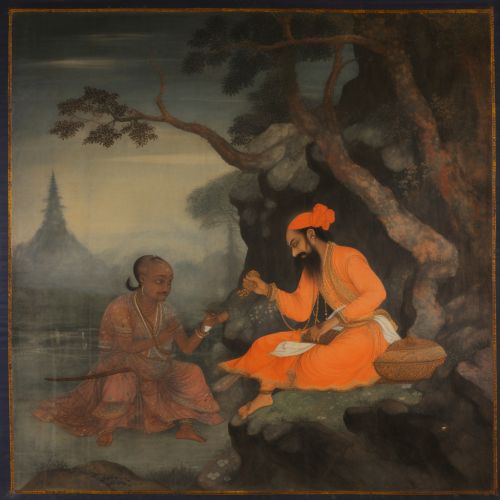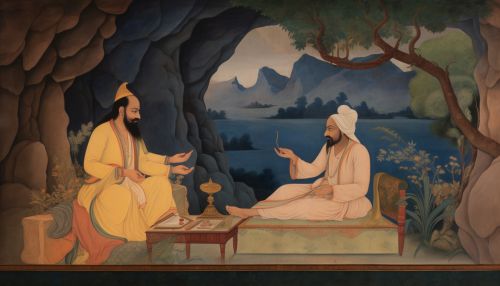Vyasa
Early Life
Vyasa, also known as Ved Vyasa, is a central and revered figure in most Hindu traditions. He is also sometimes called Veda Vyāsa (वेदव्यास, veda-vyāsa, "the one who classified the Vedas"), or Krishna Dvaipāyana (कृष्णद्वैपायन, kṛṣṇa-dvaipāyana, "the dark-complexioned one born on a black island"). He is generally considered the author of the Mahabharata, as well as a character in it, and the scribe of both the Vedas and Puranas. Vyasa is also considered to be one of the seven Chiranjivis (long lived, or immortals), who are still in existence according to Hindu belief.


According to the Vishnu Purana, Vyasa was born in an island on the Yamuna River. His birth is celebrated by Hindus as Guru Purnima, on the full moon day in the Hindu month of Ashadha. Vyasa's mother, Satyavati, was the daughter of a fisherman, and his father, Parashara, was a sage. Vyasa was born by the bank of the river Yamuna. His dark complexion earned him the name Krishna (dark), and his birthplace by the river island led to his other name Dvaipayana (island-born).
Works
Vyasa is credited with compiling the Vedas, the ancient sacred literature of Hinduism, and he is the author of a significant part of the Mahabharata, the epic poem of ancient India. He is also said to have taught the Vedas to four of his disciples, who then became the founders of the four main branches of Vedic philosophy.
Vyasa's most famous work, the Mahabharata, is one of the two major Sanskrit epics of ancient India, the other being the Ramayana. The Mahabharata, often referred to as the fifth Veda, is a comprehensive work that covers a wide range of topics, including mythology, history, philosophy, and law. It is considered a significant text in Hindu literature, and its teachings and stories have had a profound influence on Indian culture and spirituality.
In addition to the Mahabharata, Vyasa is also said to have composed the Brahma Sutras, a foundational text of the Vedanta school of Hindu philosophy. The Brahma Sutras are a series of aphorisms that summarize and interpret the teachings of the Upanishads, the philosophical part of the Vedas.
Vyasa is also credited with the compilation of the Puranas, a genre of important Hindu scriptures. These texts, written in Sanskrit, contain stories about the creation of the universe, genealogies of gods, legends of saints and sages, and myths of Indian history.
Legacy
Vyasa's contributions to Indian literature and philosophy are immense. His works form the foundation of much of Hindu thought and practice. His teachings, as articulated in the Mahabharata and the Brahma Sutras, continue to be studied and revered by millions of Hindus worldwide.
Vyasa's birthday is celebrated as Guru Purnima in his honor. This day, also known as Vyasa Purnima, is dedicated to spiritual and academic teachers, who are traditionally revered in Indian culture. On this day, disciples offer puja (worship) or pay respect to their gurus (spiritual guides).
